Business Law Assignment: Agency, Contracts, Authority and Liability
VerifiedAdded on 2022/09/26
|5
|694
|20
Homework Assignment
AI Summary
This business law assignment examines a scenario involving Amy, a purchasing agent for Aurum Supply Company, and Dan, a property owner. The core issue revolves around Amy's authority to purchase land on behalf of Aurum, given her limited role as a purchasing agent for gold. The assignment utilizes the IRAC method (Issue, Rule, Application, Conclusion) to analyze the case. The rules of agency law, including actual and ostensible authority (express and implied), are applied, with specific reference to the case of Watteau v Fenwick. The application considers whether Dan reasonably believed Amy had the authority to purchase the land, considering her ID card and the nature of Aurum's business. The conclusion determines whether Aurum is liable for the contract Amy signed, ultimately finding that Aurum is not liable due to Dan's potential awareness of Amy exceeding her authority. The solution references relevant legal texts and cases to support the analysis.
1 out of 5
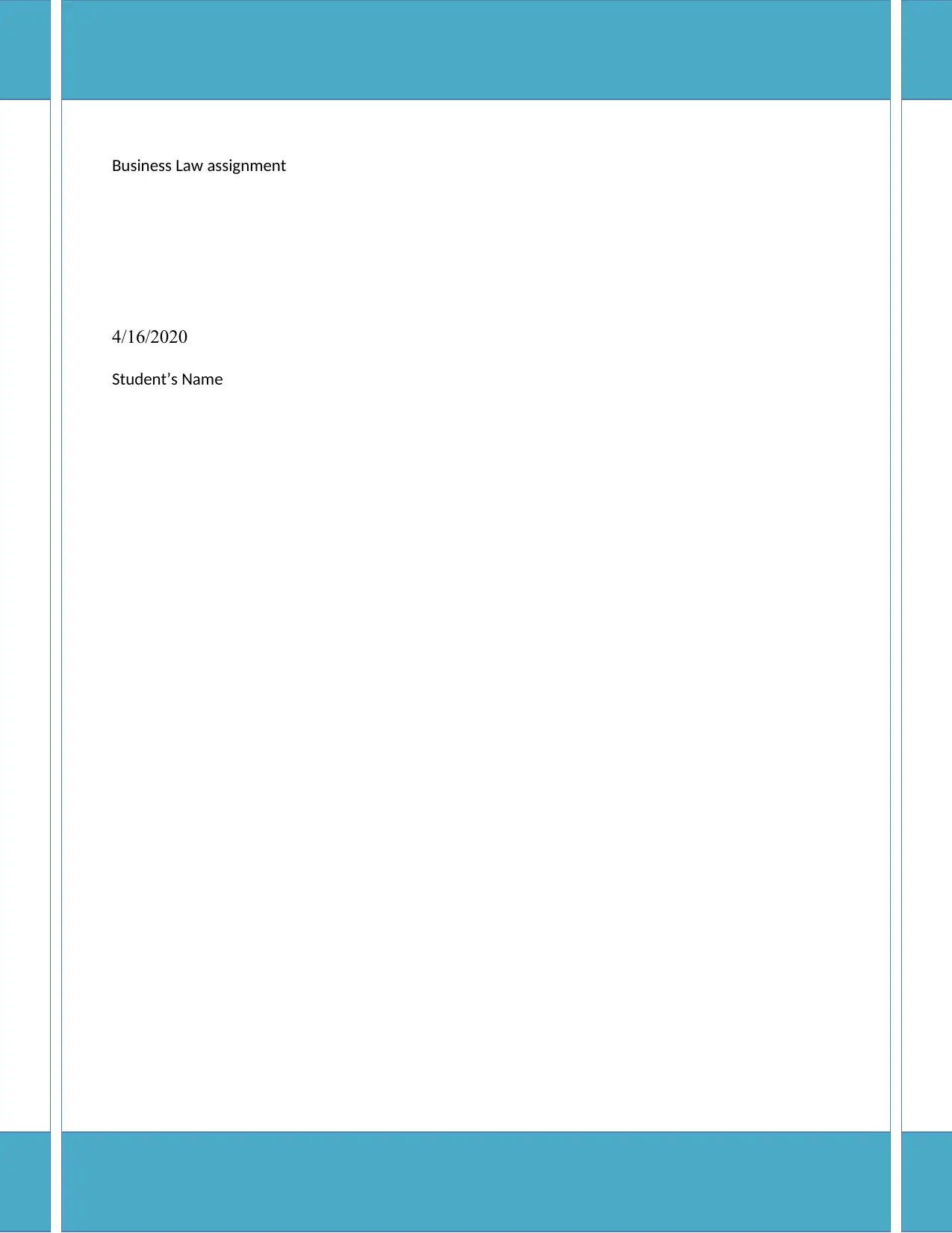
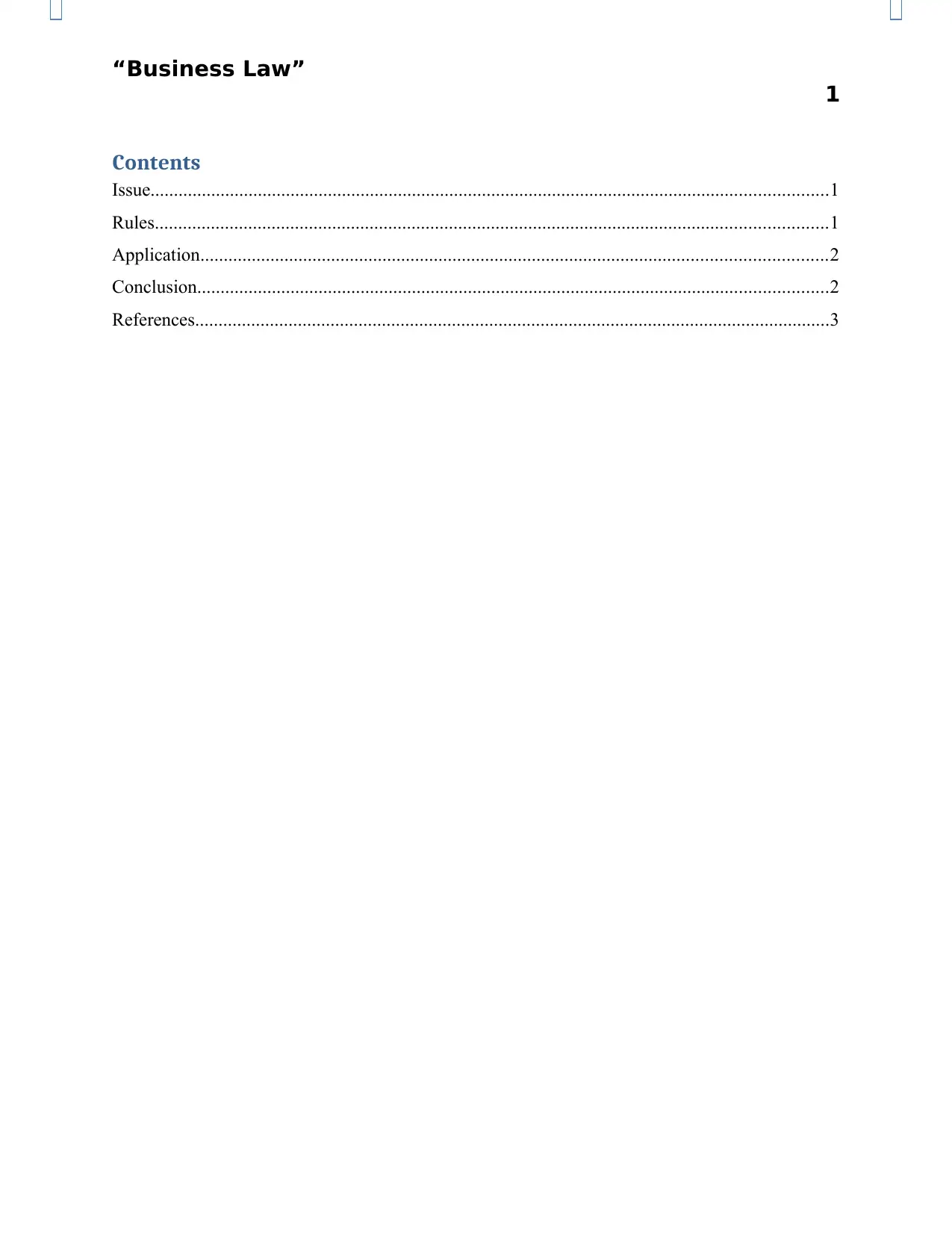
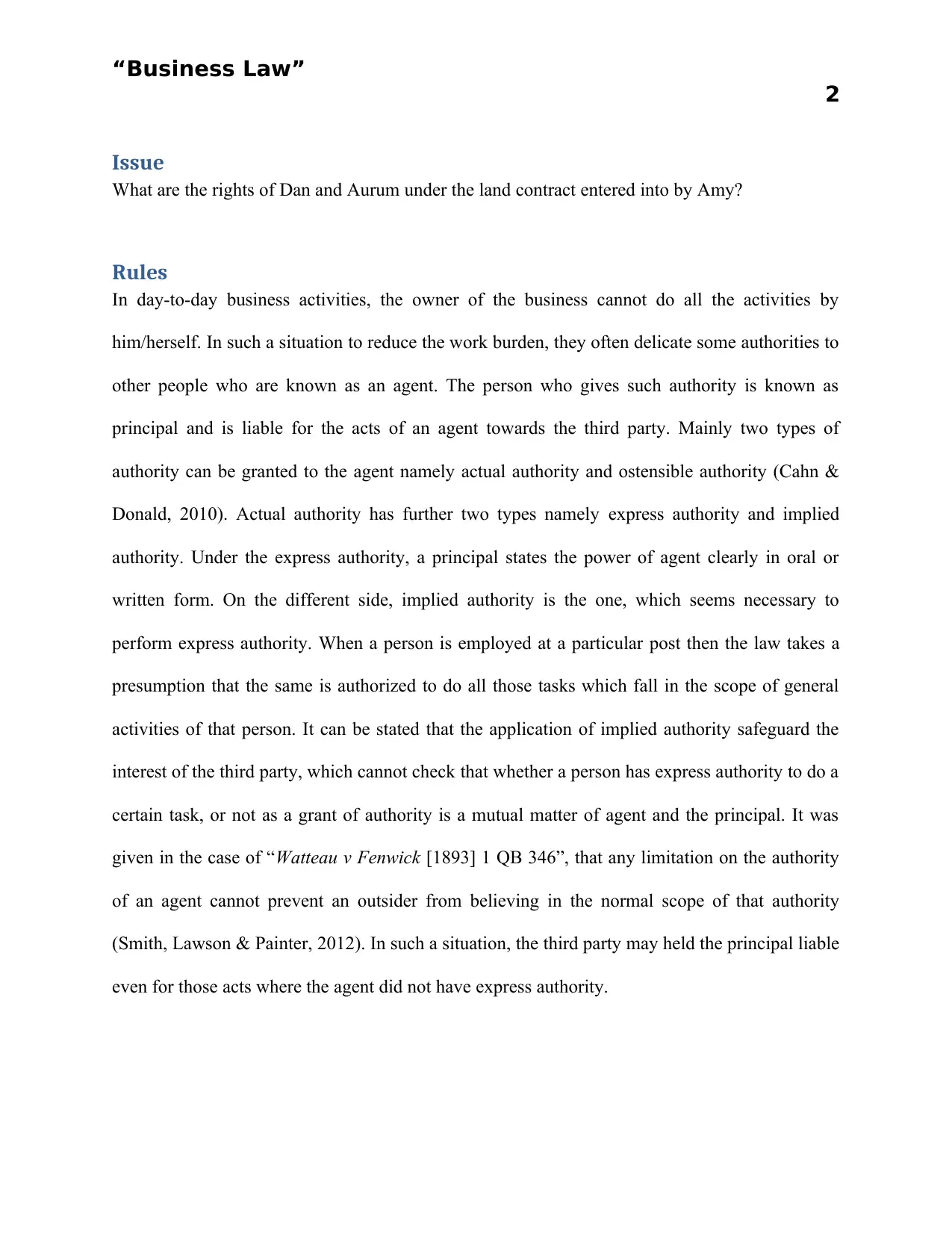

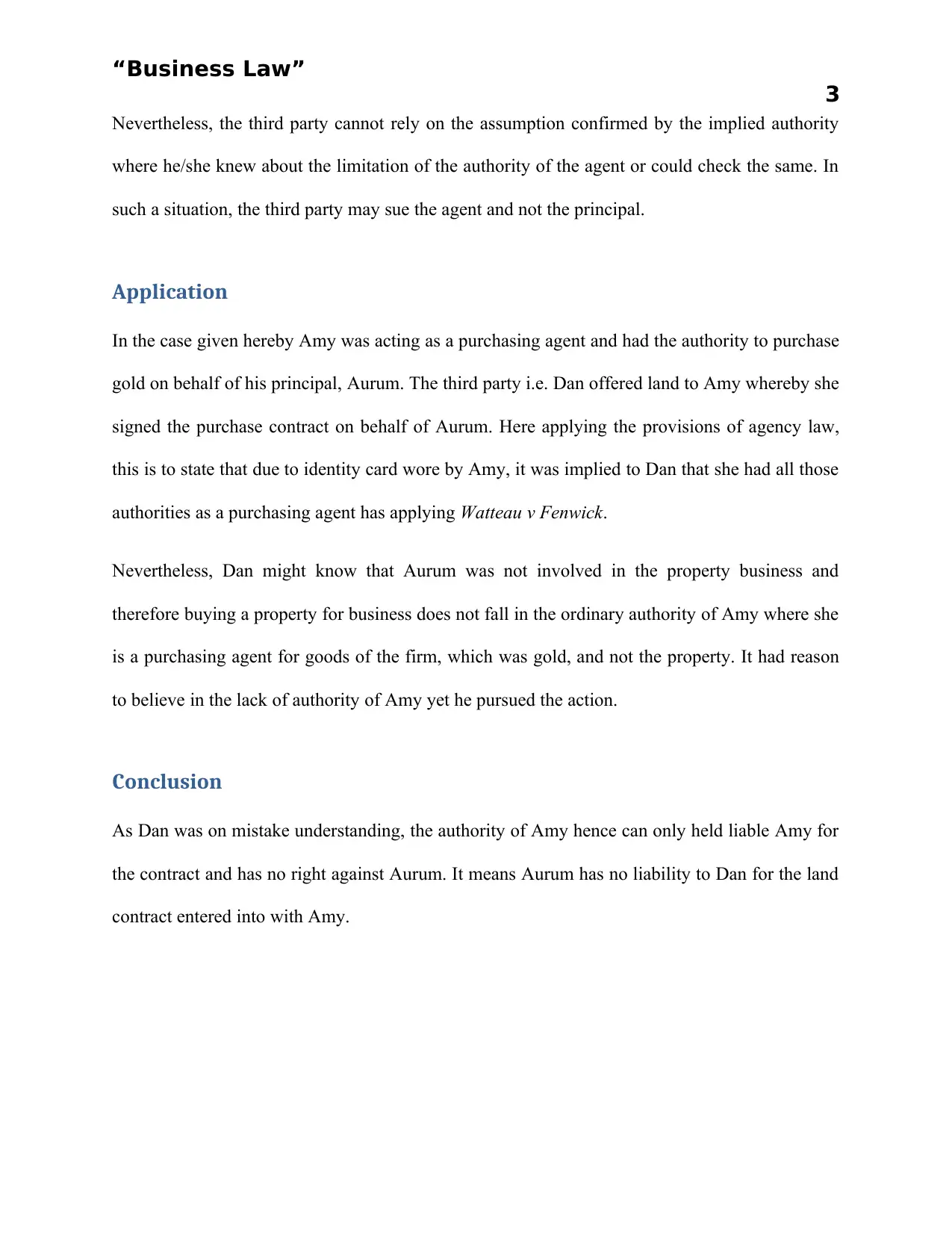
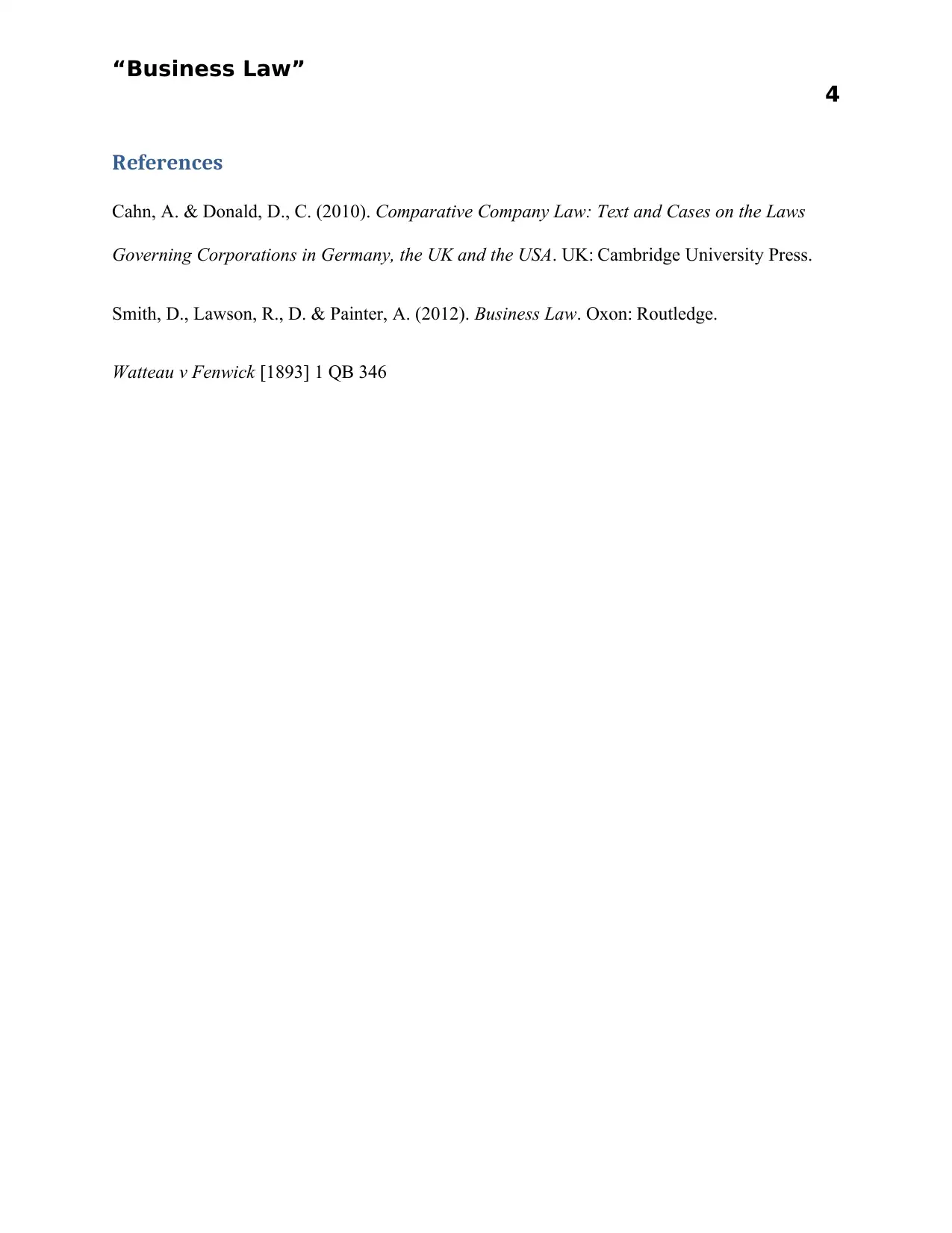





![[object Object]](/_next/static/media/star-bottom.7253800d.svg)